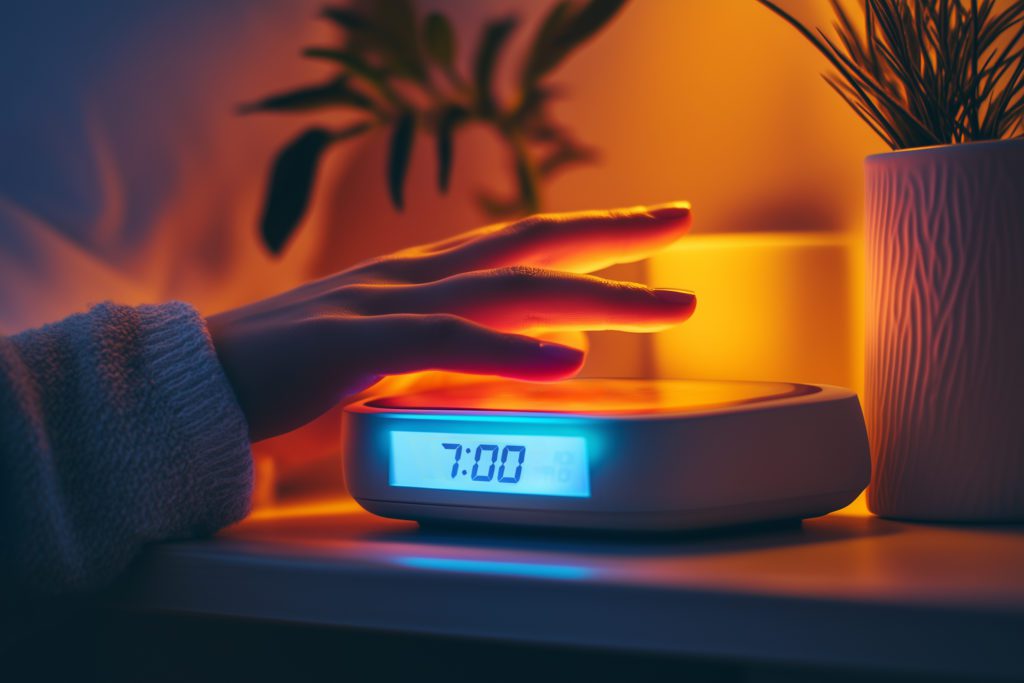
How Long Does It Take to Adjust a Sleep Schedule?
Struggling to fix your sleep schedule? Learn how to adjust your sleep routine with gradual changes, light exposure control, and expert tips for a healthier night's rest!

We all know the feeling — you're lying awake at 3 a.m., scrolling through Instagram videos, and cursing your messed-up sleep schedule. Maybe it's because you switched to the night shift, traveled across time zones, or just decided that watching "just one more episode" was a good idea. But now you're asking yourself the big question: how to adjust your sleep schedule and get back to feeling human again?
A regular sleep routine is crucial for mental and physical well-being, but life has a way of throwing curveballs that mess with our carefully planned bedtime. Whether you're trying to recover from jet lag or transition to a new work shift, adjusting your sleep schedule can feel like a monumental task. But don't worry — it's not impossible!
In this article, we'll discuss how long it typically takes to adjust your sleep schedule, the science behind it, and practical steps to help you get there without pulling out your hair.
Factors That Affect How Long It Takes to Adjust a Sleep Schedule
You might be wondering, "How long will this take? Will I ever sleep normally again?" The short answer is: it depends. There are several factors that can influence how quickly you can adjust your sleep schedule, some of which are in your control and others are not.
Personal Factors
Personal factors like age, genetics, and overall health. If you're a teenager, your body clock is already set to "stay up late, wake up late," so adjusting might take a little longer. Meanwhile, adults tend to have more stable circadian rhythms but may still face challenges due to individual differences.
Environmental Factors
Environmental factors play a huge role. Light exposure is one of the biggest influences on your circadian rhythm. Sunlight during the day helps reinforce your body's natural clock, while too much artificial light at night, such as that of smartphones, can delay your sleep onset. Research shows that blue light from screens suppresses melatonin production, making it harder for you to fall asleep.
External Factors
Then, there are external factors, like your work schedule. Shift workers, for example, often find it hardest to adjust their sleep schedules because their bodies are constantly battling between night and day.
Traveling across time zones? Studies have shown that crossing multiple time zones can delay circadian rhythms by up to one hour per day, depending on the direction of travel.
Step-by-Step Guide to Adjusting Your Sleep Schedule
Alright, now that we've scared you with all the science, let's talk about how to actually fix the problem. Here's a step-by-step guide to how to adjust your sleep schedule so you can finally break free from the endless cycle of late nights and groggy mornings.
Make Gradual Changes
If you're trying to shift your bedtime, don't go cold turkey. Instead, adjust your sleep and wake times in small increments, like 15–30 minutes earlier each night. This gradual approach gives your body time to get used to the new routine without rebelling. Using sleep-tracking features of Pillow can also help you monitor your progress and sleep quality during the adjustment.
Control Your Light Exposure
Remember, light is your best friend during the day and your worst enemy at night. Get plenty of natural light in the morning to signal your body that it's time to be awake. As evening approaches, dim the lights, put away your screens, and consider using blue light-blocking glasses if you're glued to your phone.
Create a Sleep-Inducing Environment
Set the mood! Make sure your bedroom is conducive to sleep by keeping it cool, dark, and quiet. Use blackout curtains if necessary, and invest in a comfortable mattress and pillows.
Establish a Relaxing Bedtime Routine
Engage in calming activities like reading, meditating, or taking a warm bath. Avoid stimulating activities, like scrolling through social media, right before bed.
Avoid stimulating activities, like checking your work emails or trying to solve world peace on Twitter, right before bed. Your brain needs a cue that it's time to start winding down, and a consistent bedtime routine can help provide that signal.
Be Consistent
Stick to your new schedule, even on weekends. Sleeping in is tempting, but it throws off all your hard work. Consistency helps reinforce your body's new routine; after a few days (or weeks), it will start feeling more natural.
Exercise and Diet
Physical activity during the day can promote better sleep at night. Just make sure you finish any intense workouts at least a few hours before bedtime, or your adrenaline might keep you up. Similarly, avoid heavy meals, caffeine, or alcohol close to bedtime, as these can interfere with your ability to fall asleep.
Watch Your Naps
If you're feeling tired during the adjustment period, it's okay to take a nap — just don't overdo it. Keep naps short (10–20 minutes) and avoid napping late in the day, which can throw off your nighttime sleep.
How Long Does It Typically Take to Adjust?
It depends on the size of the shift you're trying to make. For example, if you're trying to push your bedtime by two hours, it might take about a few days to adjust — if you're being consistent.
But life isn't always that simple. More significant changes, like adjusting to a new work shift or recovering from jet lag after crossing multiple time zones, could take anywhere from several days to a couple of weeks.
Also, keep in mind that everyone's body is different. Some people, especially, may find it harder to adjust to an earlier sleep schedule, while others may struggle with late-night shifts. Your best bet is to make changes gradually and listen to your body — it'll tell you when it's back on track.
The Takeaway
Adjusting your sleep schedule may seem daunting, but with the right strategies and a bit of patience, it's entirely doable. The key to success is to make gradual changes, control your light exposure, and stick to a consistent routine, even when life tempts you to stay up late on the weekends. It may take a few days or even a couple of weeks to see results, depending on how big of a shift you're trying to make, but the reward — better sleep and a healthier you — is well worth the effort.

Written by
Dr Aqsa
As a Medical Doctor, Dr Aqsa, uses her knowledge to craft complex medical information that is understandable to the general public. For years, she has tried to improve health literacy and empower readers with valuable health knowledge through her articles, blog posts, and educational materials.
Download Pillow
Get help
Press & News
Legal
Connect
X (Twitter)
Company
Copyright © Neybox Digital Ltd.



